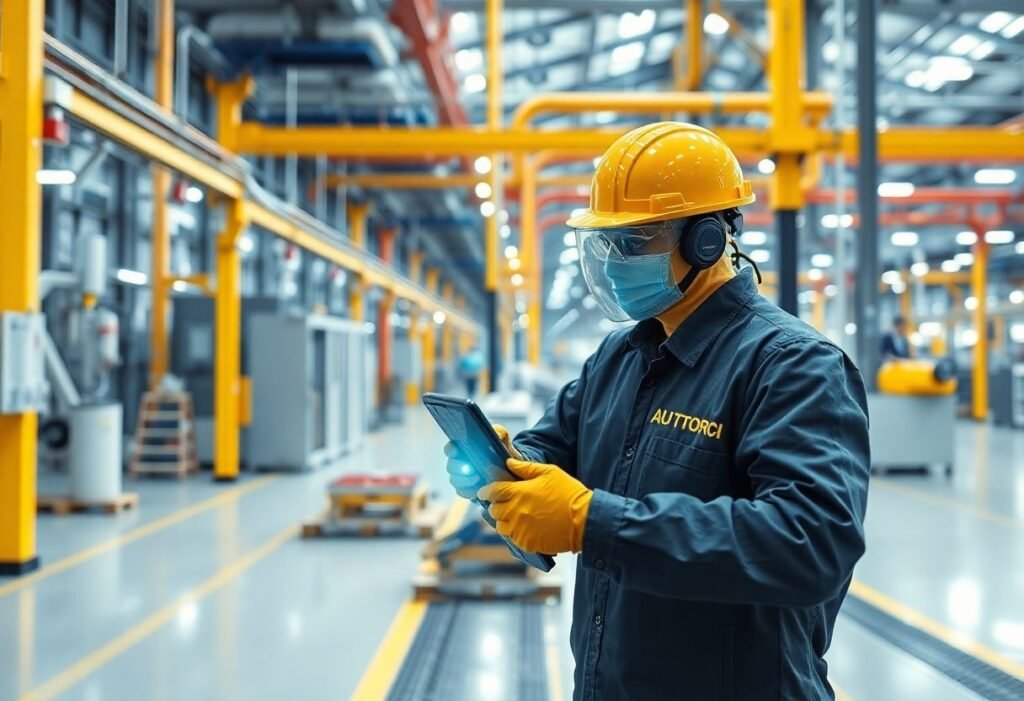Automation is transforming industrial processes, leading innovation and increasing efficiency across various sectors. This article explores how automation influences industrial processes, driving both productivity and innovation. The rapid advancements in technology have paved the way for businesses to adopt automated solutions that streamline operations and reduce manual labor.
The Role of Automation in Boosting Productivity
Automation significantly boosts productivity by reducing the time required for repetitive tasks. With the integration of automated systems, businesses can focus on core activities while enhancing the efficiency of production lines. Automated machines operate faster and with greater precision, minimizing human error. For instance, in manufacturing, robotic arms can assemble components at remarkable speeds, allowing companies to meet demand without compromising quality. Enhanced productivity not only helps in fulfilling customer orders promptly but also facilitates business growth and scalability. Furthermore, automation aids businesses in maximizing output by optimizing machine utilization.
Reducing Operational Costs through Automation
One of the key benefits of automation in industrial processes is the reduction of operational costs. By minimizing the need for manual labor, companies can significantly lower labor costs and reduce overhead expenses. Automated systems can perform complex processes without breaks, leading to a more efficient use of resources. Additionally, automation can help in minimizing waste by implementing precise control in production, ensuring that materials are used efficiently. Companies that embrace automation have reported reduced costs and improved profit margins, which positions them favorably in competitive markets.
Enhancing Quality Control with Automated Systems
Automated quality control systems play a crucial role in ensuring product consistency and compliance with industry standards. By employing advanced sensors and AI algorithms, businesses can monitor quality throughout the production process, identifying defects in real-time. This proactive approach reduces the likelihood of defective products reaching customers, thereby enhancing brand reputation. Moreover, automated quality assurance systems allow for detailed data analysis, enabling continuous improvement in production methodologies. Businesses that implement these automated quality control measures can enhance overall product reliability and customer satisfaction.
The Impact of Automation on Workforce Dynamics
The rise of automation in industrial processes alters workforce dynamics significantly. While some fear that automation leads to job displacement, it is essential to understand that it also creates new opportunities. As mundane tasks are automated, skilled workers are needed to manage, maintain, and optimize these systems. Businesses must adapt their employee training programs to provide staff with the necessary skills to work alongside advanced technologies. Furthermore, the collaboration between humans and machines can lead to innovative approaches in problem-solving, fostering a more dynamic work environment.
Automation Driving Innovation in Industrial Design
Automation is a driving force behind innovation in industrial design. The ability to quickly prototype and test designs through automated processes accelerates the product development cycle. Technologies such as 3D printing and CNC machining are integral to creating complex designs with greater accuracy and less material waste. This not only shortens lead times but also encourages experimentation and creativity in design. Companies leveraging automation in their design processes are better equipped to respond to market trends and consumer demands, ensuring they remain competitive in a fast-paced industry.
Future Trends: The Evolution of Automation in Industry
The future of automation in industries appears promising, with continual advancements in technology shaping new trends. For instance, the integration of artificial intelligence and machine learning significantly enhances automation capabilities, enabling smarter decision-making processes. The Internet of Things (IoT) is also on the rise, allowing machines to communicate with each other and data systems, leading to intelligent automation solutions. As industries adopt these innovative technologies, there will be less room for inefficiencies, driving further advancements in productivity. Overall, the evolution of automation will continue to play a vital role in shaping the future of industrial processes.
Disclaimer: The information provided in this article is for informational purposes only and does not constitute professional advice.





















